
Adaptogens are becoming more mainstream now but did you know that these powerful herbs and mushrooms have been used as medicine for centuries?
For a plant to qualify as an adaptogen, it must meet 3 criteria.
- Adaptogens must to be non-specific and must assist the human body in resisting a wide range of adverse conditions, such as physical, chemical or biological stress. These may include environmental pollution, climate change, radiation, infectious diseases, and interpersonal disharmony.
- Adaptogens must maintain homeostasis in humans, that is, these substances can offset or resist physical disorders caused by external stress. If you’re too high, they calm, if the body is too low, they elevate function.
- Adaptogens must not harm the normal functions of the human body.
When considering brain health, you’ll want to include herbal support that is both Nootropic (supports better brain health) and Neurotropic (supports building healthier brain and nerve cells). You might consider these the “preeminent foods” for better cognitive function. They may help improve cognitive performance, increase processing speed, sharpen reaction time, boost learning and retention and can even lower stress response.
Here are the top adaptogenic herbs and mushrooms that may give your brain the boost it needs.

Gotu Kola
The main group of components in gotu kola is the triterpenes including asiaticoside, madecassoside, asiatic acid, and madecassic acid, which have antioxidant and anti-inflammatory properties that are shown to positively influence brain plasticity which means a much sharper you.
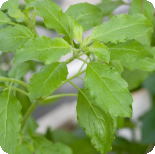
Holy Basil
Holy Basil has been found to protect organs and tissues against chemical stress from industrial pollutants and heavy metals, and physical stress from prolonged physical exertion. It has also been shown to counter metabolic stress through normalization of blood glucose, blood pressure and lipid levels.

Water Hyssop
Water Hyssop is best known as a neural tonic and memory enhancer, this powerful herb increases cerebral blood flow and neurotransmitter modulation.
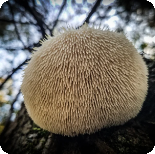
Lion’s Mane
A very yummy and medicinal mushroom is a well established candidate for brain and nerve health because it triggers neurite outgrowth and regenerates damaged nerves. Lion’s Mane has been extensively studied for its neuro-health properties.
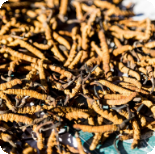
Caterpillar Fungus
With its powerful anti-tumor properties, the ability to regulate the endocrine system, enhance your immune function, and protect the kidneys, lung, liver, and other organs… this might be our favorite!
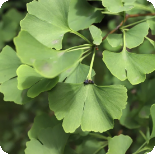
Maidenhair Tree
In recent decades, an extract of the leaves of the tree Ginkgo biloba has been used to improve memory in disorders like Dementia – disorders that affect memory and intellectual functioning, and are caused primarily by Alzheimer’s disease and vascular issues.
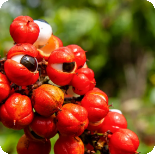
Guarana
Guaraná seeds contain traces of theobromine and theophylline, other alkaloids in the xanthine group. In humans, xanthines stimulate the central nervous system fighting fatigue, increase secretion of gastric acid and serve as a bronchodilator and a diuretic.
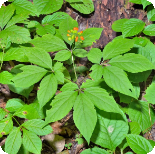
NotoGinseng
Protective actions against cardiovascular diseases and diabetes have been reviewed along with its pharmacological actions including hemostatic and wound healing activity, antioxidant activity, anti-inflammatory activity, hypoglycemic and anti-hyperlipidemic activities, anti-coagulation activity, neuroprotective effects, hepatoprotective effects, renoprotective effects, anti-tumor activity, and more.
Founder of Sun Horse Energy Adaptogens, Dan Moriarty reminds us, “As with many herbs it’s important to note that using adaptogens alone, as a single herb, may not show the herb’s true potency – herbs are meant to be used in formulations, as they are very synergistic. If you feel that you haven’t seen a difference when incorporating magical adaptogens into your diet, this may be the issue.”